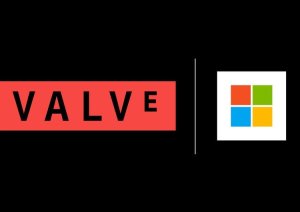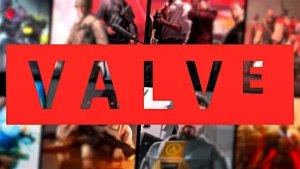Over the years, there have been numerous rumors suggesting that major game publishers have made offers to acquire Valve, the company behind iconic IPs like Half-Life and Portal.
Valve, which also owns and operates the Steam Store, has never been short of cash, making the idea of anyone purchasing it often seem laughable. However, this week, the topic has resurfaced, with claims that Microsoft might be preparing a bid.
Rumors Resurface: Microsoft’s Alleged Bid
The Source of the Rumor
Dior, a well-known figure in the Counter-Strike community, has claimed that Microsoft is preparing a $16 billion offer to acquire Valve Corporation. This offer would presumably include the Steam Store, the most popular PC gaming platform.
Dior’s claims have sparked significant discussion within the gaming community, with many speculating on the potential implications of such a deal.

Why This Makes Sense for Microsoft
There are several reasons why this acquisition would be strategically beneficial for Microsoft:
- Entry into the Handheld Console Market: Microsoft is eager to enter the handheld console market, an area where Valve already has a foothold with the Steam Deck.
- Boosting PC Gaming Revenue: Owning the Steam Store would significantly boost Microsoft’s PC gaming revenue, as Steam is a major cash generator.
- Strengthening Game Pass and Xbox Ecosystem: Integrating Valve’s games and the Steam platform into Microsoft’s Game Pass service could enhance the value proposition for subscribers.
The Strategic Fit: Microsoft’s Gaming Aspirations

Enhancing Microsoft’s Gaming Portfolio
Valve’s acquisition would add some of the most beloved game franchises to Microsoft’s already impressive portfolio. Games like Half-Life, Portal, and Dota 2 have massive followings and could attract even more gamers to Microsoft’s platforms.
Leveraging Valve’s Expertise
Valve’s expertise in game development and digital distribution would be invaluable to Microsoft, helping enhance its game development processes and digital distribution strategies.
Potential Challenges and Considerations
Despite the strategic benefits, there are also potential challenges and considerations:
- Regulatory Scrutiny: A deal of this magnitude would likely attract significant regulatory scrutiny to ensure it doesn’t create a monopoly.
- Integration Challenges: Integrating Valve’s unique corporate culture with Microsoft’s could present challenges.
- Community Reaction: The gaming community’s reaction could be mixed, with concerns about Valve’s independence and the future of Steam.

Conclusion
While the idea of Microsoft acquiring Valve remains speculative, the potential benefits for Microsoft are clear. Gaining control over the Steam Store and leveraging Valve’s expertise in handheld gaming and digital distribution could provide significant advantages. However, until official statements are made, this remains an intriguing but unconfirmed possibility.

